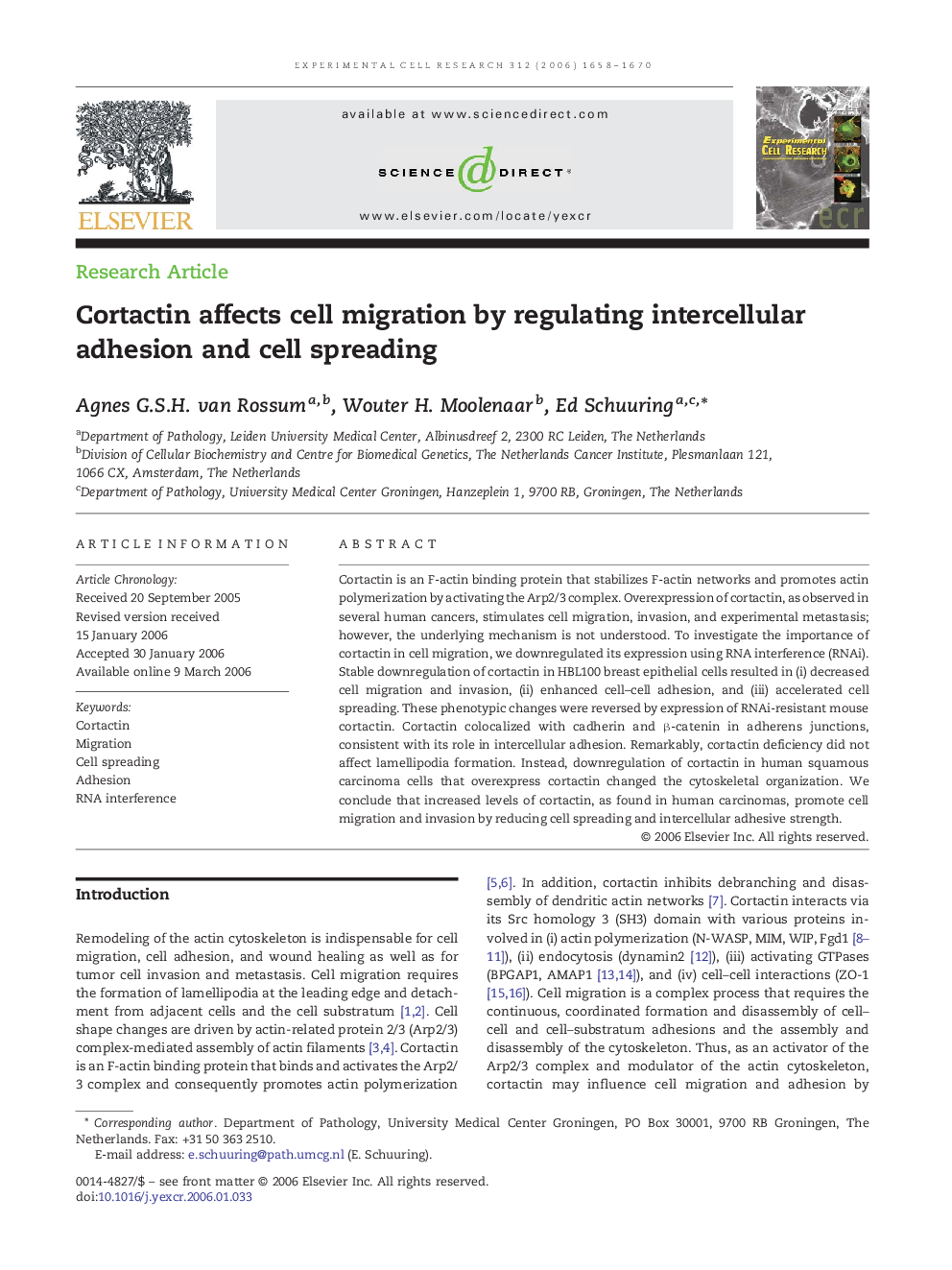| Article ID | Journal | Published Year | Pages | File Type |
|---|---|---|---|---|
| 2132935 | Experimental Cell Research | 2006 | 13 Pages |
Cortactin is an F-actin binding protein that stabilizes F-actin networks and promotes actin polymerization by activating the Arp2/3 complex. Overexpression of cortactin, as observed in several human cancers, stimulates cell migration, invasion, and experimental metastasis; however, the underlying mechanism is not understood. To investigate the importance of cortactin in cell migration, we downregulated its expression using RNA interference (RNAi). Stable downregulation of cortactin in HBL100 breast epithelial cells resulted in (i) decreased cell migration and invasion, (ii) enhanced cell–cell adhesion, and (iii) accelerated cell spreading. These phenotypic changes were reversed by expression of RNAi-resistant mouse cortactin. Cortactin colocalized with cadherin and β-catenin in adherens junctions, consistent with its role in intercellular adhesion. Remarkably, cortactin deficiency did not affect lamellipodia formation. Instead, downregulation of cortactin in human squamous carcinoma cells that overexpress cortactin changed the cytoskeletal organization. We conclude that increased levels of cortactin, as found in human carcinomas, promote cell migration and invasion by reducing cell spreading and intercellular adhesive strength.
